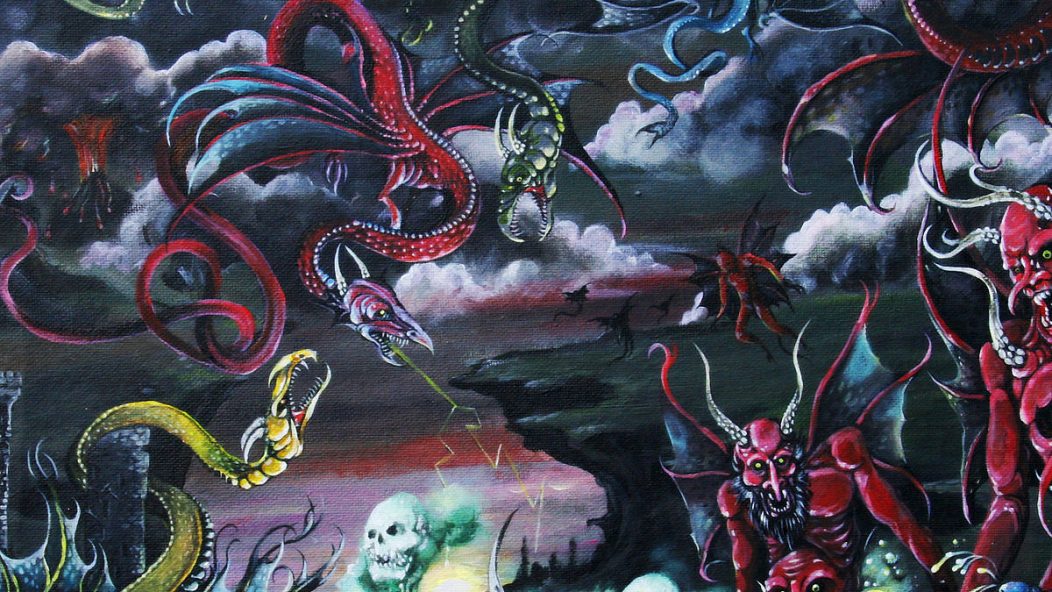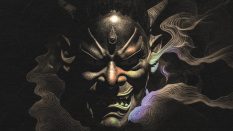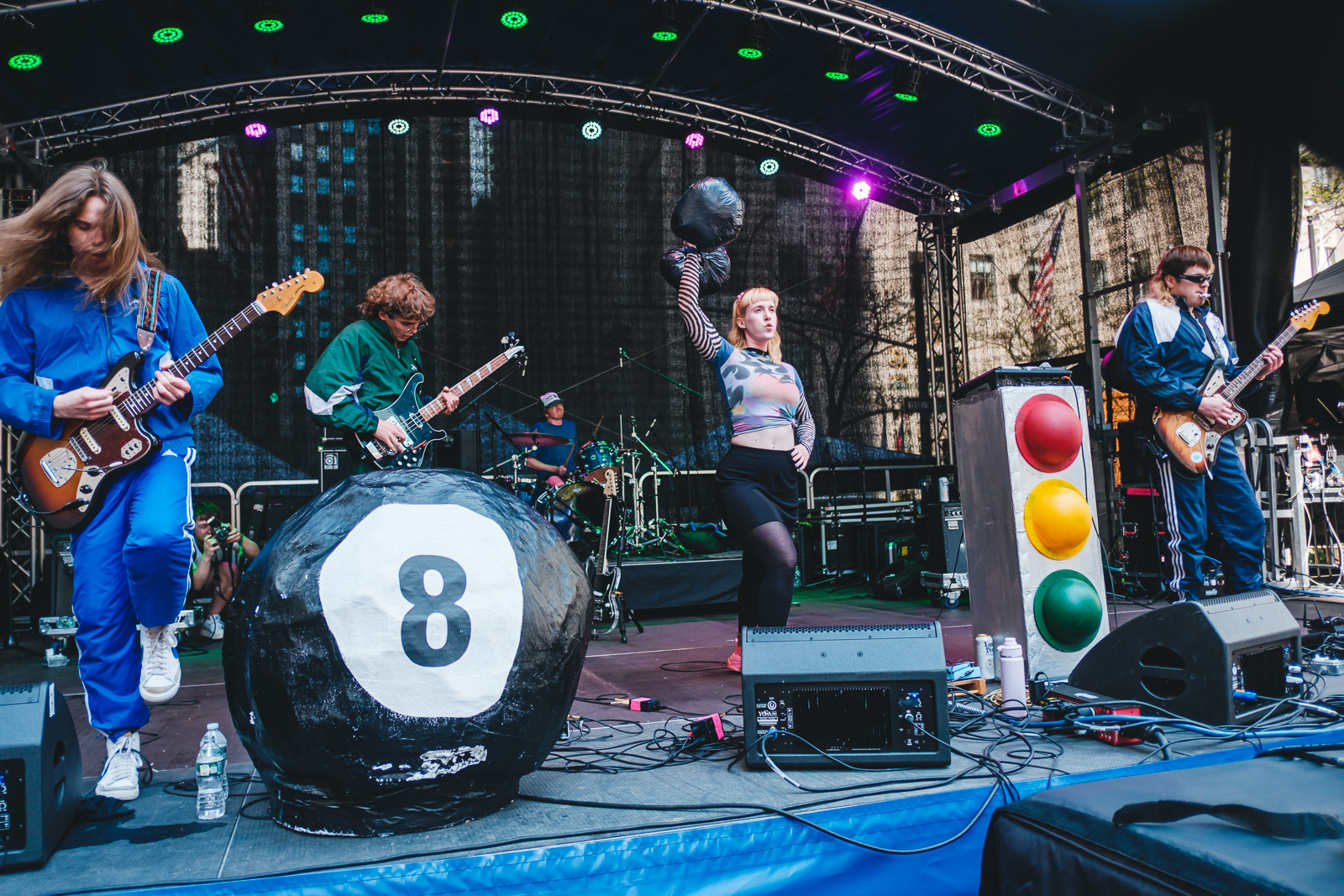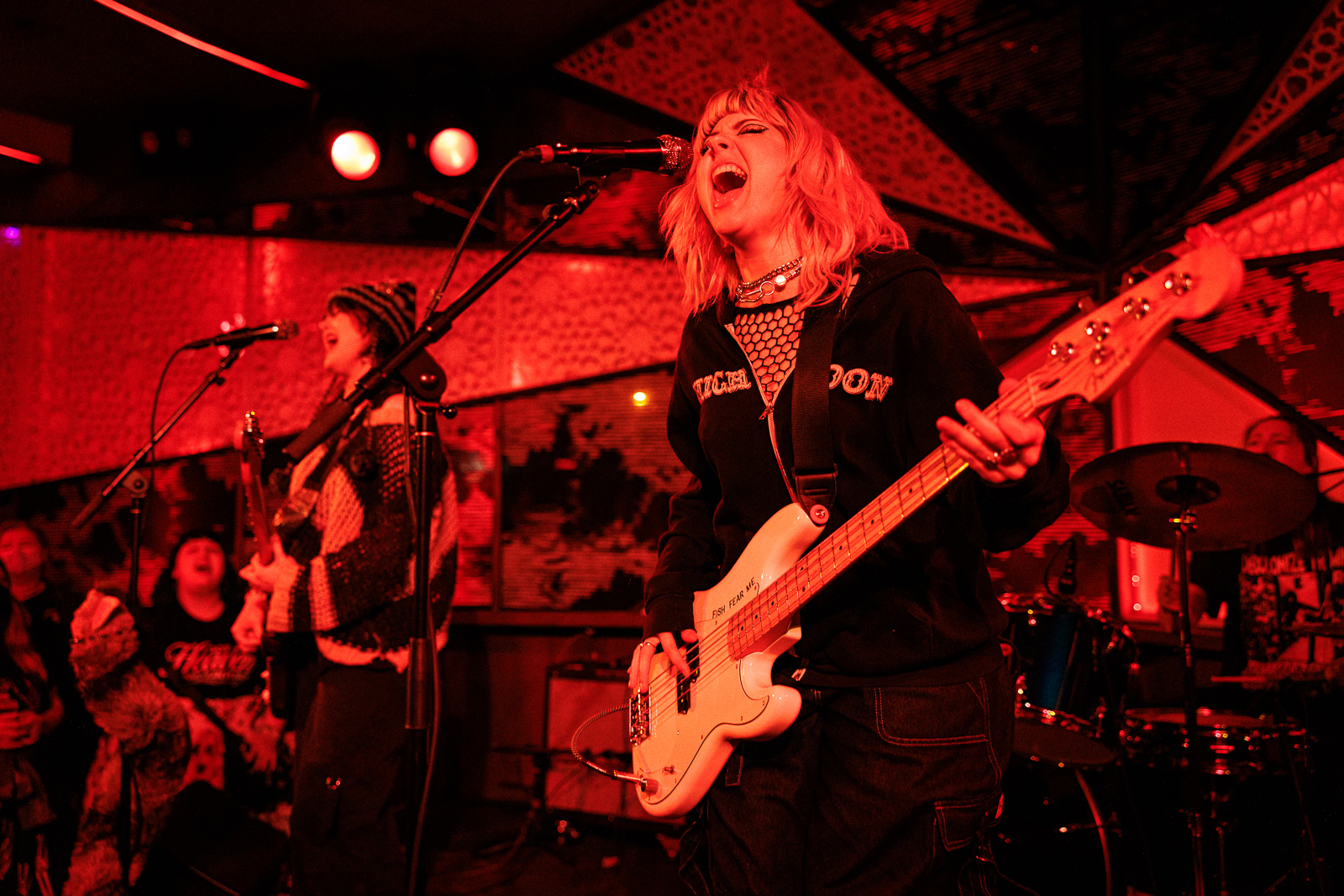
Daeva's Diabolic Metal Emerges "Through Sheer Will and Black Magic" (Interview)
Philadephia’s own black/thrash crew have reemerged with their debut full length LP Through Sheer Will and Black Magic… , out soon on 20 Buck Spin. The band, originally conceived as a two-piece which included founding member Steve Jansson and drummer Justin Bean, quickly gained attention from their powerful Pulsing Dark Absorptions EP from back in 2017. Things fell into place with with the addition of drummer Enrique Sagarnaga (Crypt Sermon, The Silver), bassist Frank Chin (Crypt Sermon) and finally, with the enlisting of enigmatic and charismatic frontman Ed Gonet (ex-Infernal Stronghold) the band was complete. These guys could have beaten up anybody who gave them “the eye” at Philly’s famed Trocadero any day of the week.
We sat down with Steve, Enrique, and Ed to go over the last few years as the band dealt with their own unique struggles and losses as we all did during the Pandemic. We also discussed the amazing artwork provided to the band through some interesting exchanges with artist Karmazid, the recording process with metal uber-producer Arthur Rizk, and the spirit of what inspired the band to exist and play some blackened and bad tunes. Read on below for more with the Philly boys and what the future holds for this band as we anticipate the street date with Satan.
…
…
Since you are getting ready to release your first album and a lot has happened since your debut EP Pulsing Dark Absorptions came out, what was the difference in the recording process?
Steve Jansson: It was a lot different, back when we did that little EP it was a friend of mine playing drums and I, just the 2 of us. He lived in the area at the time and was relocating back to Michigan and before he moved back we wanted to do a project with no real ambition, recording in the basement of our old practice space, no click track. Done wrong, no thought or effort, just some rehearsals. I tried to do vocals and it felt like it would eventually be a problem. I blew my voice out after the first half of a take of song, because I’m fucking terrible. I looked back at my drummer Justin and said “I’m not fucking doing this.” I know the guy that I want to sound like, so that’s when I called Ed (Gonet). I sent over the songs and wanted to see if he wanted to put vocals to them, to which he said “Hell yeah”. I gave him a week or 2 with the songs, he showed up and did his thing and that’s how it started.
When did the songwriting aspect for this album come together?
SJ: Right after the EP got released Dave from 20 Buck Spin asked if I wanted to play Migration Fest. At the time we had no lineup, but I said why not. I asked Enrique and Frank to come along. It was an opportunity so why not. Since then, we hadn’t stopped playing and started writing. During the Pandemic we lost 2 practice spaces, all kinds of other personal shit, but we eventually got here.
Enrique Sagarnaga: One of the things that remains weird about the Pandemic is that people aren’t going to know the ripple effects of this thing for like 10 years – in an “Oh that’s why we were like that!” kind of way. For us to get this record done despite the challenges of losing a practice space where the EP was recorded as well as where Crypt Sermon’s Out of the Garden was written was tough. I know it feels silly to talk about losing a practice space to answer your question, but it is important because this place was more than just a place to convene, it’s the energy it carried. A good amount of this album has been written across different settings and places since 2018. Some tracks on the album were written later into the experience than others – so some have a death metal vibe, some are faster than others. It’s interesting to see how the changes in scenery throughout the writing process and us overcoming the pandemic’s challenges is reflected in the music.
Time and place do play a huge factor in the recording process.
SJ: It’s kind of like Enrique said, the ripple effect. It has definitely fucked me in ways that I’m still trying to figure out. Let’s just say that I’m not always the most upbeat guy; staying inspired is tough too. Sometimes writing music can feel like pulling teeth and that’s because I have very high standards for myself.
I really like the artwork here, what’s the story behind it?
SJ: It’s a very hard but very elegant painting, but it’s beautiful too. When we initially came up with it in terms of using purples and oranges as a template kind of like Dark Angel. The album art idea kind of came about during some Beavis and Butt-Head kind of immature banter sessions. Then we sent the description over to him. It’s a style of music that I love very much, however the bands that do it well I can count on just one hand. Even though it doesn’t have to be the same exact thing every time. Same goes for the cover art.
ES: I really like it when you take an artist and you study their body of work and themes. Obviously, our band is “shitty”, unrefined metal, so I really wanted someone of a much higher brow to look at that and paint at a very high level. This was communicated to them in the dumbest and most bare-bones way possible. If you look at the EP cover, you know what you are looking at; it’s literally a fortress with thorny gates and a pentagram on it, however its so imposing that it still feels more like an abstract concept and gives you a vibe. With the “Through Sheer Will…” cover, we wanted to communicate “show but don’t tell” again. Karmazid painted the cover – he is really well-known for his intricate illustrations, such as Visigoth’s Bells of Awakening, and has amazing paintings. We wanted to see what he could do with a bare-bones concept of “absurdly blasphemous imagery”. Demons, dicks, dragons, a fortress of evil, skulls.
What was it like, Enrique, to record this album vs. other ones that you guys have recorded together?
ES: This was the easiest album recording that I’ve ever done. We have all worked with Arthur (Rizk) and are very comfortable with him. We have also been able to sit with the final version of songs for longer periods of time compared to our other records. I think I got through all but one song on day 1 and the second day was just to finish up. It was night and day in terms of recording compared to anything else – whether it be something Steve and I recorded together or even with The Silver, who had an album that we wrote as we recorded it. Going into the session my mentality was “ok we wrote this song over a year ago, played it every day – let’s go.” I’m thankful for the time I had to refine what I was doing because this is a kind of drumming that I’ve never done before. I try to keep all my rhythmic ideas apart for every band that I’m in, (otherwise what’s the point of being in different bands?) so it was great to express this side of it and geek out over drummers like Gene Hoglan and all this extreme shit – I don’t have to focus on time signature changes or volume because this is just LOUD and FAST all the time.
SJ: Usually with full-lengths the responsibilities are distributed a bit more. I wrote all the riffs on the record, the click tracks and recorded all the guitars myself, and we collectively arranged all the songs. I had more responsibilities and I was more comfortable since I didn’t have to worry about other people doing it their way. There was more on my plate, but overall it was easier. The style of music is a bit more of a comfort zone, making music that is based more on sheer momentum and urgency which is what comes very naturally to me, putting the riffs together and such. Crypt Sermon as a band allows for more space to write music and know when to step back, you don’t have to do that with Daeva.
I know you mentioned your vocalist Ed Gonet before, what’s his back story?
SJ: He’s lightning in a bottle, lots of charisma. Lots of intensity. He carries around a black lyric book, the lyrics are things he has pieced together over the years. He would write things on the floor when we were writing parts and would go through his book and string them together into context. It is a really interesting and artistic way of doing things.
As far as the band as a whole what bands or experiences does it remind you of?
SJ: There are some things about it that come up organically. There is proficiency and a sharpness to the songwriting. I haven’t really been able to articulate why I love this very specific sounding music. You go from thrash to ‘80s and ‘90s metal and thrash and death and black metal, so this seems like a perfect marriage of those.
ES: When I think about it, I try not to think about other bands and their music, but rather scenes that come to mind – Combat Records home videos for example – there’s an old video of Dark Angel playing The Trocadero in Philly. They all look like bad guys on stage and they are just shredding. Even the audience look like people you don’t want to bump into – the bad dudes who showed up to the gig and went into the pit, got into a fight and got their ass beat. Everyone there is doing Demon shit.
So it’s to say that I try to think of Daeva as a representation of Satanic-panic heavy metal and the spirit of unhinged ‘80s Heavy Metal culture. This is almost a love letter to those kinds of bands and the people who carved SLAYER onto their desks in school and threw the horns at any priest walking by.
A song that stuck out to me was “Itch of the Bottle.” Ed, would you care to explain the story behind it?
Edward Gonet: It’s the main song on the record that has a hefty personal weight for me – there was a time where I went through an alcoholic withdrawal. I found myself going to work straight from the ER and avoiding having seizures in front of people there:
“Red bulging eyes
From simulated suffocation
Gasping, clinging, and striving
Mutation into miscreation
Violent neck jerks, seething with the will to destroy…”











